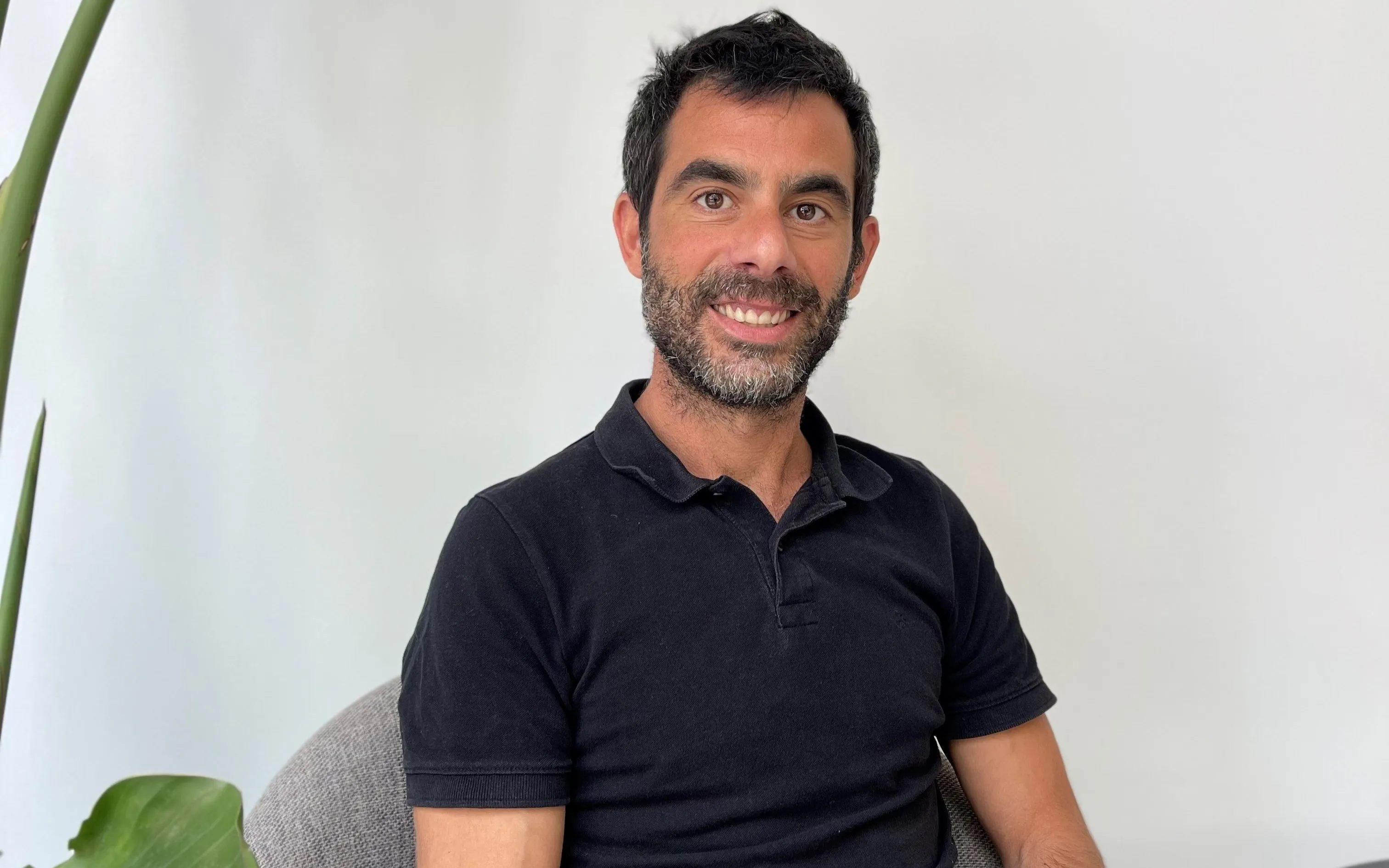Enric Fabra: "It is necessary to reach levels similar to those of the European average regarding the percentage of social housing for rent"
Enric Fabra, coordinator of foundations that promote and manage social rental housing in Catalonia, explains to us what they do in their organization, highlighting the influence of other European countries to offer prices and housing that meet the real capabilities of the population.
¿Cuándo y por qué se creó COHABITAC?
COHABITAC is the coordinator of foundations promoting and managing social rental housing in Catalonia. The organization was established in 2003, so this year we celebrate the 20th anniversary.
In its beginnings, the Coordinator was made up of three foundations, with the aim of being able to group entities that had been providing social housing for years, in order to have more strength with the Administration and to share knowledge and experiences that they had as as a result to strengthen the foundations and the sector in general, as well as to have recognition for the work done.
Which foundations do you work with?
We currently maintain the foundational purpose, grouping fifteen foundations with very diverse capacities and specializations. I would like to be able to name them, because the activity of each of them is truly action-oriented: Family and Social Welfare Foundation, Nou Lloc Habitatge Social Foundation, Private Foundation Patronat Santa Creu de la Selva Girona, Private Foundation Foment of Social Housing, Salas Foundation, Grup Qualitat Private Foundation, Social Initiative Private Foundation, SER.GI Foundation, Habitat3 Foundation, Mambré Foundation, Factory of Somnis Private Foundation, Albert Espelt Manrique Foundation, Roure Foundation, Hábitat Solidari Calella Foundation and Foundation Housing for All.
It should be borne in mind that some member foundations have been working for social housing in our country for several decades, as is the case of the Patronat de Santa Creu de la Selva, the entity attached to COHABITAC with a wider trajectory, which being established in 1957, that is to say, a foundation with more than 65 years of tireless work.
What are the objectives and values of the entity?
The aim and raison d'être of the foundations and of the coordinator itself is none other than to combat residential exclusion in Catalonia through the promotion, transfer, purchase, management and rehabilitation of housing in social rent under strict criteria of good practices .
When we create rental housing for groups at risk or in a situation of exclusion, we incorporate accompanying tasks and social supervision. In cases where these homes are inclusive, we supplement this support with the support of organizations specialized in their specific problems (disabilities, addictions, gender violence, etc.).
Throughout history, the foundations affiliated to COHABITAC have promoted around 10,000 social housing (rental and purchase) and we currently manage nearly 4,000 social or very social rental housing, which is equivalent to 8% of the housing stock social for rent in Catalonia.
What is the Catalan reality in terms of social housing?
The reality of social housing in Catalonia is complex and presents significant challenges. More than 40% of Catalan households have to make an extra effort in order to pay the rent. It is one of the highest values in the European Union, 15 percentage points above the average.
Unfortunately, this situation is particularly serious in the case of the lowest incomes, who end up allocating between 50 and 60% of their income to pay the rent. Social rental housing in Catalonia represents approximately 1.8% of total number of first residence homes, a percentage very similar to the national average which does not reach, not even by a long shot, the average European levels.
Could you explain the cause?
One of the main reasons that explain this situation, beyond the lack of political will, lies in the fact that, historically, public action in this field has focused on promoting access to property through of sheltered housing. In addition, the regulatory framework that has been articulated around sheltered housing has never taken care to preserve its social function throughout the building's entire useful life, which has prevented the public sector from being able to provide -se of residential resources with which to meet the needs of future generations.
How is the future predicted?
In the medium and long term, a new scenario opens up in which social housing policies can make a significant quantitative leap, considering that the start of the deployment of the Sectoral Territorial Plan for housing is planned for the month of housing October of this year.
This Plan must allow all households formed in the next 20 years to have access to decent housing.
What will achieve the goals?
To achieve these objectives, the Plan establishes an increase in the social rental stock up to 7%. The municipalities that are part of the areas with strong and accredited residential demand will have to have 15% of housing allocated to social policies.
This increase in the social housing stock in Catalonia can only materialize with the active participation of social entities, such as the foundations affiliated to COHABITAC.
Is it very different from the rest of Europe ?
This 1.8% that we mentioned earlier is far below the European average, which is 15%. And countries such as the Netherlands, with 30%, Austria, with 24%, Denmark, with 20%, Sweden, with 19%, the United Kingdom, which, despite the continuous reductions of this park since the end of of the 80s, it still retains 18%, or France, with 17%.
All these percentages are the result of a long historical period of public resource dedication and legislation favorable to this residential modality that offers a very important working base to public administrations when having to respond to pressing needs of the population that cannot access housing on the free market.
Despite processes of regression in this field (such as that of the United Kingdom, or the Netherlands), the position that still remains facilitates public action and, in some cases, as is the case in Austria, especially in the cities of Vienna and of Linz, becomes a determining element in the formation of free market prices.
Therefore, the influence of European countries is necessary.
It is necessary to reach levels similar to those of the European average in terms of the percentage of social housing for rent, in order to cushion the inefficiencies of the free market and adapt the prices on offer to the real capacities of the population.
Could you tell me about the internationalist vision of the entity?
Firstly, COHABITAC, together with the Table of Entities of the Third Social Sector of Catalonia, participated in a mission in Brussels to connect the entities of the third social sector with the institutions of the European Union, facilitating knowledge of how these work and make visible the priorities of the sector at a social level.
How would you describe the experience ?
It was very enriching in order to learn, first hand, the work carried out by the different bodies such as the Government Delegation to the European Union and ACCIÓ, the Economic and Social Committee and the Committee of the Regions, as well as the Plan d European action for the Social Economy with speakers from the European Commission, Social Economy Europe and DIESIS Network. We were also able to hold meetings with Catalan MEPs, where we took the opportunity to expose the main difficulties faced by entities affiliated to COHABITAC.
Did you continue with your international assignment?
At the end of 2022 we continued with the international strategy, attending the edition of the International Social Housing Festival (ISHF) in Helsinki, with the aim of evaluating the suitability of participating, actively, in the next edition . Once the visit was over, the decision was firm; COHABITAC had to participate in the fourth edition of the social housing festival, highlighting the role of foundations in the provision of social housing in our country.
This 2023, the ISHF was held in the city of Barcelona and with the active participation of the entity and the affiliated foundations, through the provision of a stand in the exhibition area, the realization of guided visits to four social housing developments for rent and a round table under the name "Provision of social and affordable housing by non-profit entities: a road map for Spain", session co-organized with the ProVivienda association , and with the participation of Mrs. Núria Lambea , Deputy Director of the UNESCO Chair of Housing at Rovira i Virgili University and Mr. Steve Loveland, Resident Participation Manager of the Irish entity Clúid Housing .
Do you have a country in mind to visit in the future?
Looking ahead to the coming years, it is planned to continue with this international strategy, with an eye on countries such as Scotland or England, with whom we have already started contacts with some Housing Associations .
Do you think we should use other international projects as a source of inspiration for our own?
Definitely, yes. There are European models that have demonstrated, for decades, that they have sufficient capacity to manage large parks of social rental housing, to be able to learn not only from their successes, but also from the challenges, obstacles and bad practices.
Of the different existing European models, we highlight the one carried out in the Netherlands, under the name " woningcorporatie ", as well as the British model of the " Housing Associations ”, clear examples of the tendency, since the seventies and eighties of the last century in Western Europe, to orient social housing models towards a more market-oriented vision.
Contrasting the figures for social rental housing in Catalonia with those of the rest of Europe , we quickly realize that we need to learn from the strategies of the different leading countries.
What is the role of the entities? Are they qualified to respond to the housing crisis?
The three essential pillars for foundations to be able to provide social housing in those municipalities where our collaboration is required are:
- Land: Agreements for the mobilization and revitalization of municipal land intended for sheltered rental housing, through a surface right for 75-99 years. After this period, both the land and the building revert to the council.
- Financing: Access to financing lines for promotions of social rental housing that cover 70-80% of the cost of the promotion. And here it is important to highlight that, nowadays, the only institutions that give us this coverage are the ICF (Catalan Institute of Finance) and the Triodos bank (as ethical banking), since these are social and energy-efficient projects. Traditional banking has made it clear to us on repeated occasions that it is not in their interest, a situation we find shameful, since the solvency of the foundations over the last 20 years is more than accredited...
- Subsidies: Subsidies intended for the promotion of sheltered rental housing equivalent to 20-30% of the cost of the project.
What difficulties are they facing?
It is important to highlight that, if funding sources were found that met sufficiently favorable conditions (interest rate and repayment period), the foundations could promote social housing for rent without the need for public aid.
As you can see, the recipe is simple, although with a strong dependence on the monetary factor, since the foundations do not have their own resources, at least, today.
But it is true that, once the foundations make the payment of the last mortgage installment of a development, they generate economic resources which, due to the Foundations Law, obliges them to reinvest at least 70% of the income and other annual net income that we obtain to fulfill the founding purposes, that is to say, to promote new social rental housing.
And it is precisely this model of reinvestment from non-profit (or limited profit) that has allowed the previously mentioned countries to achieve such a high volume of social housing compared to the Spanish State.
Regarding your presence in the Spanish presidency of the Council of the EU, what do you hope to contribute?
Knowing that from June to December of this year the Spanish State will preside over the Council of the European Union, we consider it a key moment to be able to approach the legislative agenda of the European Union and highlight the small percentage of social housing for rent in our country and the corresponding grievances that this situation causes in society.
What are your expectations?
From COHABITAC we expect the adoption of relevant social measures for the work of the third sector.
From what we understand, it is planned that a meeting of the Council linked to the legislative agenda of the housing sector will be held in the city of Gijón in November, a day that will be very present in the agenda of the entity.
In the same way, the Presidency of the Spanish State will coincide with the recognition of its member states of a European notion of the social economy, as it has been developing since the adoption of a Plan European Action for the Social Economy. In this sense, the conference "Capital of the Social Economy" that will host the city of Donosti in the same month of November, proposes an unmissable meeting space.
In any case, the current situation of political instability that the Spanish State is experiencing following the result of the elections of the past 23 July, presents many uncertainties in the execution of these measures.
Do you think it is a good space to achieve and promote your work?
Taking into account that the Council of the European Union has legislative functions, but also budgetary functions, and that the Spanish State requires a more fair and supportive economy, it is necessary that this generated wealth reaches all citizens and serves to improve their opportunities and living conditions.
In this sense, we consider it necessary to provide a European fund for the long-term financing of the promotion of social housing with favorable conditions in terms of interest rates and amortization terms, which make the operations viable, already that the private financial sector in Spain does not respond to the funding demands of public and private promoters to promote social rental housing, which fundamentally undermines the possibility of being able to undertake future projects that improve access to housing for part of the most vulnerable population.
So what hinders the promotion of social housing?
In reality, the source of the blockage to being able to substantially expand the social rental housing stock in the Spanish State resides within the state, a good example being the percentage of GDP allocated to social spending on housing, which it does not exceed 0.1%, compared to the reference countries mentioned above, which are characterized by intense state intervention, the European average being 0.6%.
Another factor that turns out to be a strong impediment to the promotion of social rental housing by the member foundations is the fiscal side.
Some of the historical demands of COHABITAC are the modification of the corporate tax to encourage the renting of homes by companies to social entities to allocate them to social rental programs or the modification of the conditions of application of the Super reduced VAT on all phases relating to the promotion of social rental housing and the constitution and transfer of surface rights for the promotion of social rental housing.
Therefore, it will be necessary to continue working at all levels (municipal, regional, state and European) in order to establish, reform and implement new policies, legislation and programs aimed at solving the serious problem of housing in our home.







Add new comment